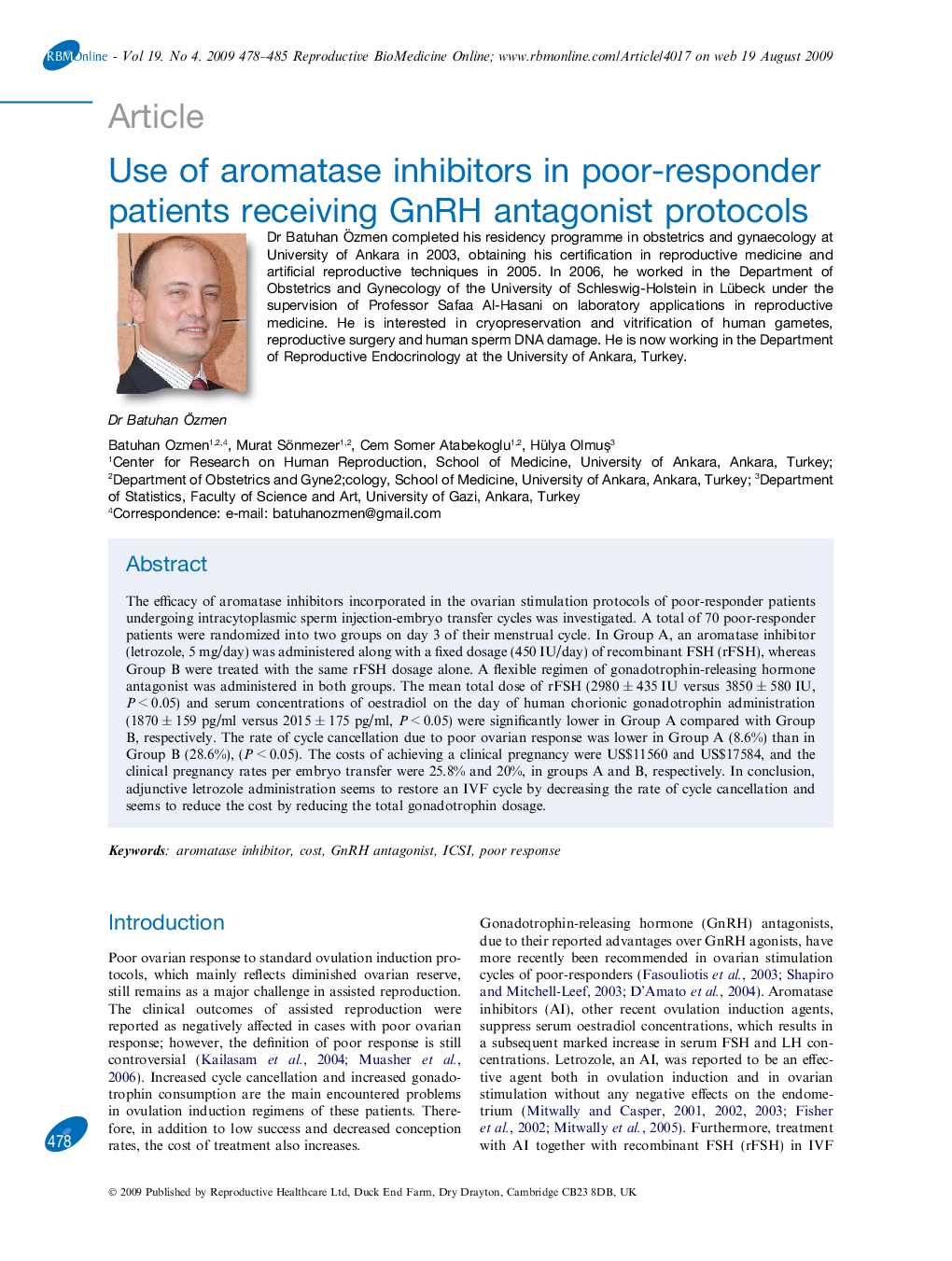| کد مقاله | کد نشریه | سال انتشار | مقاله انگلیسی | نسخه تمام متن |
|---|---|---|---|---|
| 3972170 | 1256794 | 2009 | 8 صفحه PDF | دانلود رایگان |

The efficacy of aromatase inhibitors incorporated in the ovarian stimulation protocols of poor-responder patients undergoing intracytoplasmic sperm injection-embryo transfer cycles was investigated. A total of 70 poor-responder patients were randomized into two groups on day 3 of their menstrual cycle. In Group A, an aromatase inhibitor (letrozole, 5 mg/day) was administered along with a fixed dosage (450 IU/day) of recombinant FSH (rFSH), whereas Group B were treated with the same rFSH dosage alone. A flexible regimen of gonadotrophin-releasing hormone antagonist was administered in both groups. The mean total dose of rFSH (2980 ± 435 IU versus 3850 ± 580 IU, P < 0.05) and serum concentrations of oestradiol on the day of human chorionic gonadotrophin administration (1870 ± 159 pg/ml versus 2015 ± 175 pg/ml, P < 0.05) were significantly lower in Group A compared with Group B, respectively. The rate of cycle cancellation due to poor ovarian response was lower in Group A (8.6%) than in Group B (28.6%), (P < 0.05). The costs of achieving a clinical pregnancy were US$11560 and US$17584, and the clinical pregnancy rates per embryo transfer were 25.8% and 20%, in groups A and B, respectively. In conclusion, adjunctive letrozole administration seems to restore an IVF cycle by decreasing the rate of cycle cancellation and seems to reduce the cost by reducing the total gonadotrophin dosage.
Journal: Reproductive BioMedicine Online - Volume 19, Issue 4, October 2009, Pages 478–485